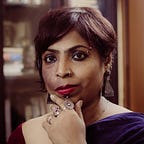Photo Feature: Universal Sisterhood — Breaking The ‘Woman is Woman’s Worst Enemy’ Myth
Women are genetically designed to be mean, competitive, jealous and hate each other. This theory is oft repeated in popular culture. In 2010 researcher Kelly Valen published the book ‘The Twisted Sisterhood: Unraveling The Dark Legacy of Female Friendship’ to prove this theory further. The book contained research findings of surveying 3000 women 90% of whom said that they frequently felt “currents of meanness and negativity emanating from other females.”
So this is all predetermined genes affecting our psychology then, and we cannot do much about it, right? Wrong. Because what we consider as work of genes therefore purely objective and scientific do not actually exist in isolation. Psychology and genetics are also part of thousands of years of social conditioning. Effects of social environment on gene regulation is well documented.
Simone De Beauvoir famously said, “One is not born, but rather becomes a woman.” Being woman is a gender performance.
The moment a baby is born with a vagina she’s told that she is a girl and her gender performance begins. She is told that a girl has this one chance to make it in life — in youth, grab a man and keep him, for old age, beget a son and keep him.
“This house and its people is your world, you live or die here, and you have this single throne that you have to hold on to.”
Her area is restricted, position is one, means of survival limited, so the competition becomes tough. The subconscious starts to build a defense and survival mechanism which always tries to cancel out any other woman competing for the throne of her house.
Boys on the other hand are told that the whole world is at their feet. Go out and conquer, discover, explore, invent, build, destroy…the world is your canvas.
Men have to wage a war, fight the enemies, save humanity, start a religion, write philosophy, make music and art. Women just have to ensure that they remain queen of the house.
Thus stories of brotherhood is common in popular culture. Eternal saga of platonic friendship between two men, bothers in arms fighting the war and sacrificing their lives for each other are all part of a large literary canon and have been themes for numerous movies, TV shows, songs, poetry and so on. But sisterhood or female bonding is rarely heard of.
Women are portrayed as jealous friends or sisters eyeing for same men or mother-in-law and daughter-in-law trying to control the same man.
I am a photographer and I try to fill the gender gaps with my work. I love to create images and visuals of things I find missing from popular culture. So here are some of my images capturing eternal female bonding between — friends, sisters, lovers and comrades in arms.
Universal sisterhood — all women irrespective of their class, caste, race, nationality are oppressed and their common enemy is patriarchy, they need solidarity to fight patriarchy — this was one of the earliest call of feminism. Here’s to universal sisterhood.
I have deliberately chosen not to provide any story behind these images. The idea was to create a visual, giving a story to the visual restricts the interpretation. I want these images to be open to people’s imagination — what you imagine is who you are and what a woman can be.
Many of these photos are street portraits and therefore not of perfect quality technically. There maybe issues with focus, noise and sharpness. But my focus is to capture that moment as truly as I can.
This is an ongoing project with more photos to be added.
All photos are the sole property of Sanjukta Basu Photography. More details on www.sanjuktaphotography.com
